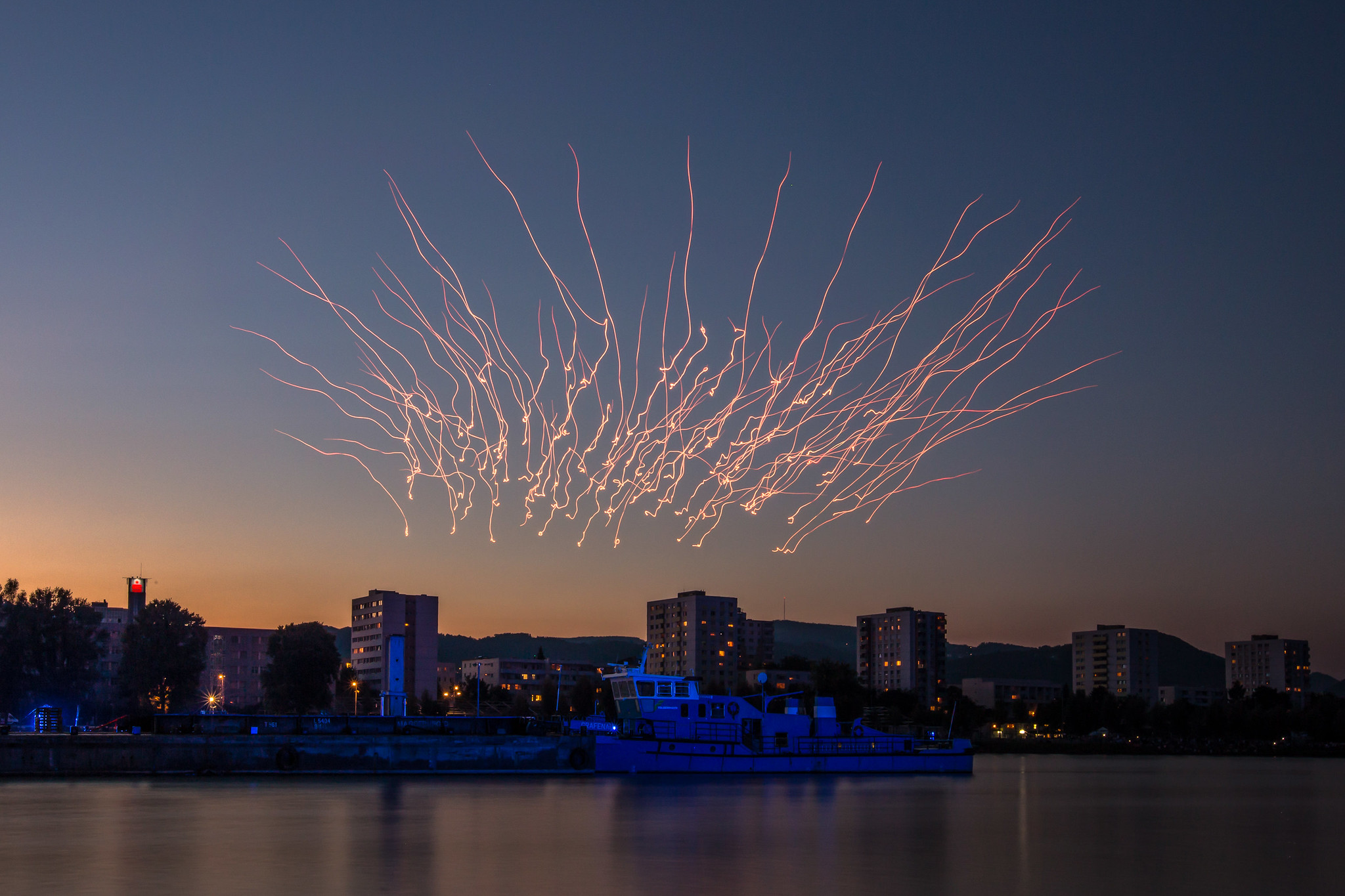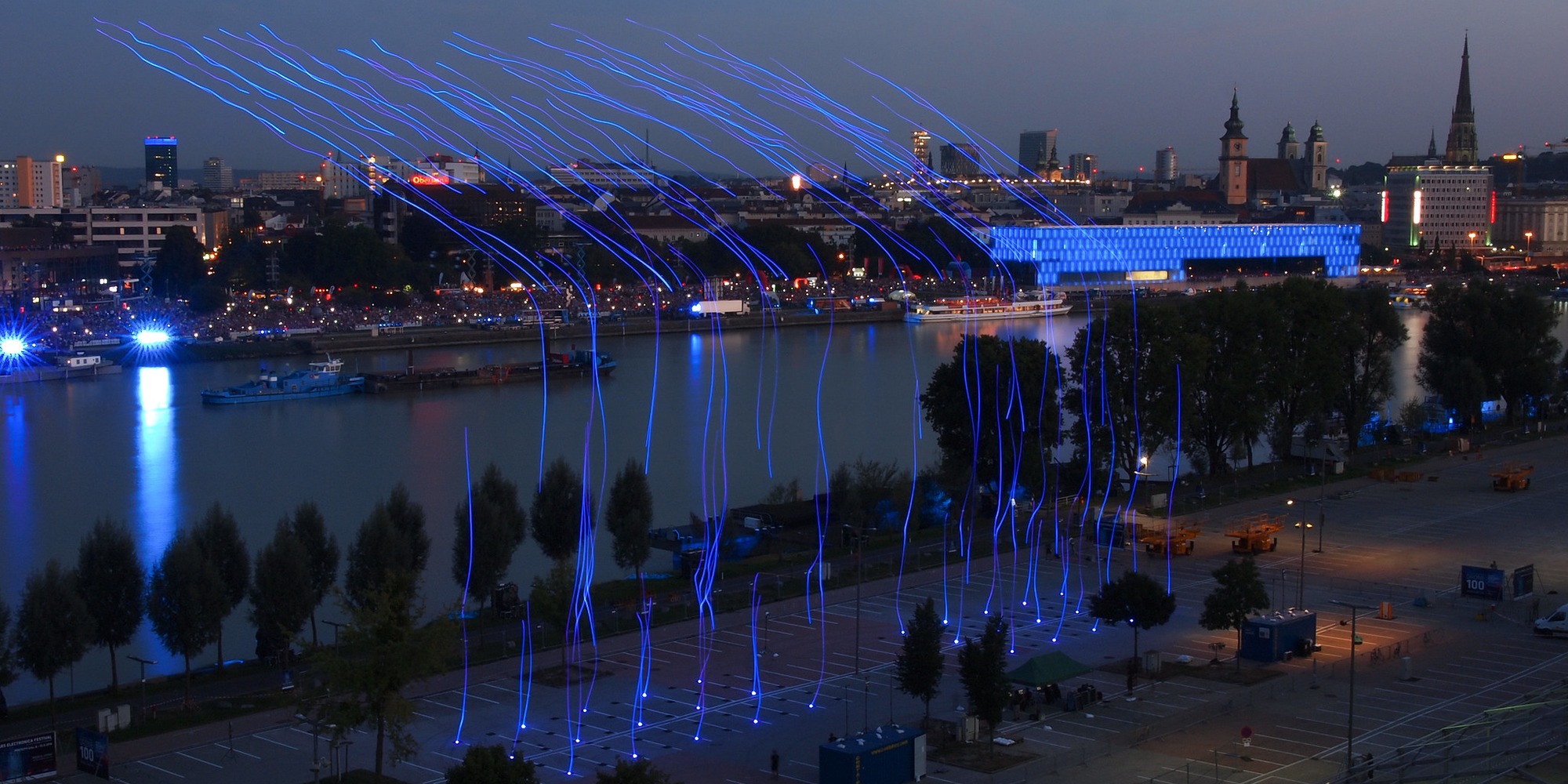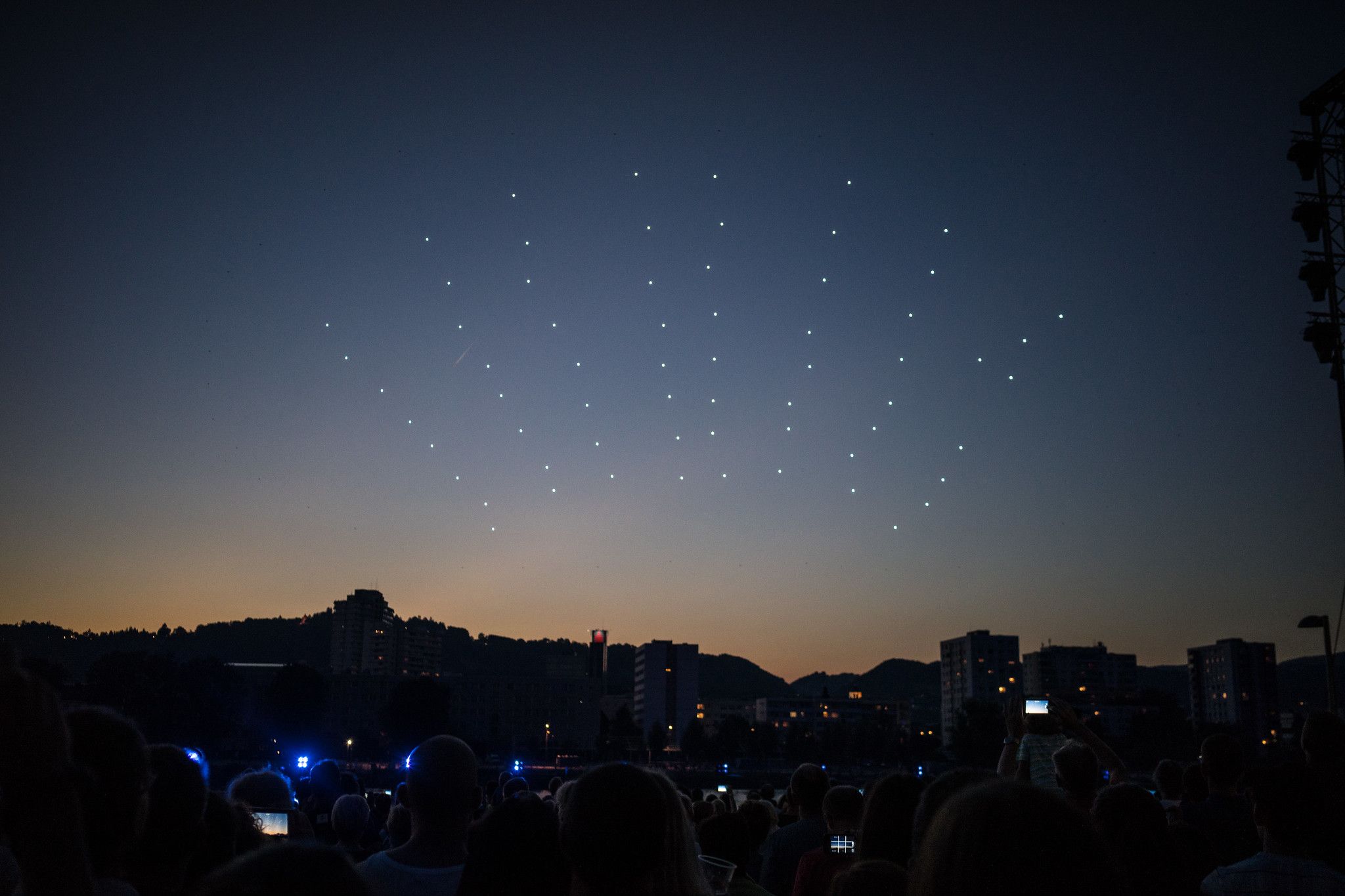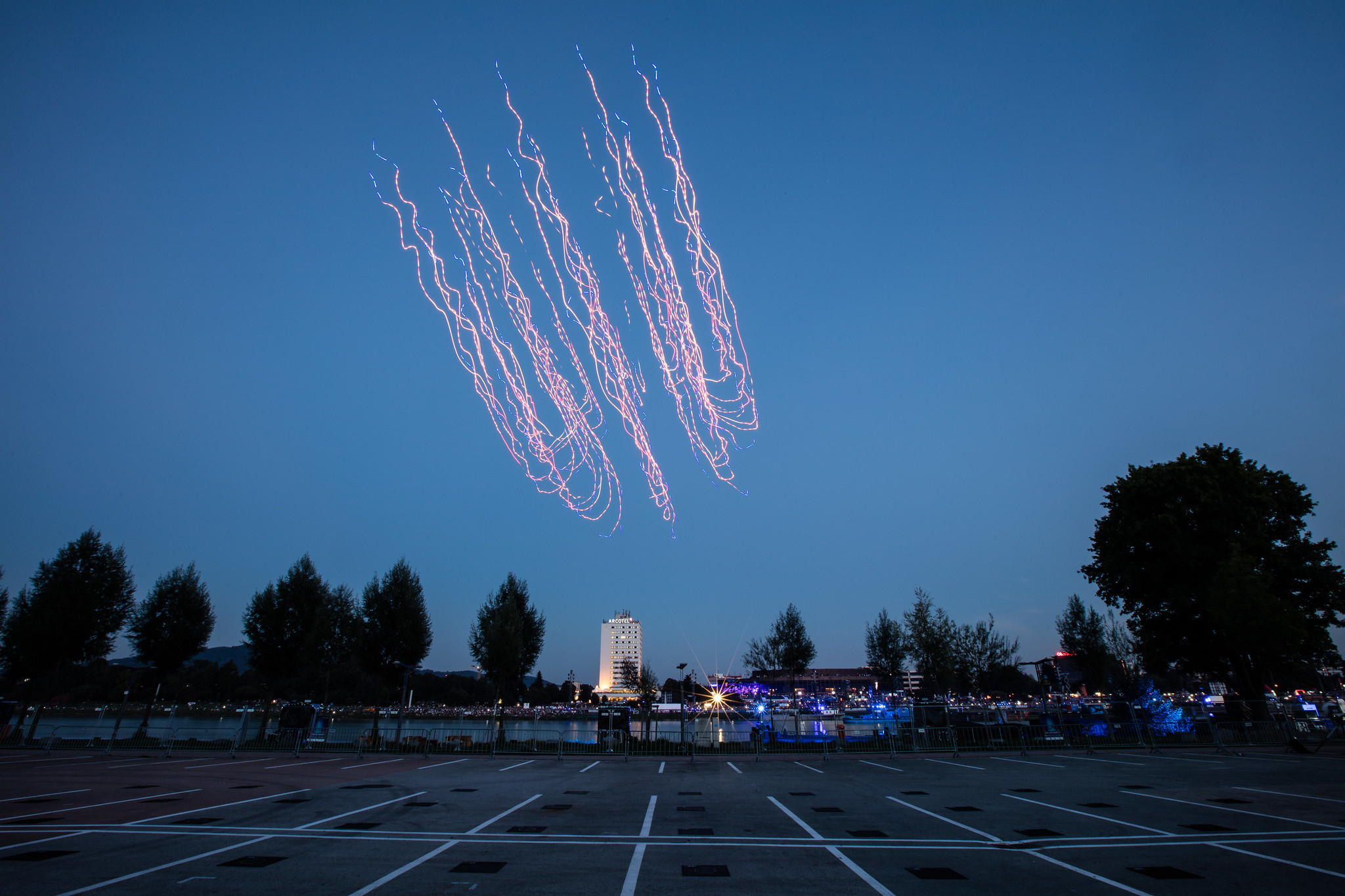Partnering with Intel ™ on the Drone 100 project paid off tremendously for the Spaxels crew in terms of technical impetus and media coverage. Following this momentous achievement and with the next Ars Electronica Festival coming up, it was high time to demonstrate just how far this undertaking had come at the very spot where it had begun in 2012 when a formation of 50 drones took to the sky, thrilling festival goers in Linz and creating a media sensation worldwide.
Setting a world record in the “Most Unmanned Aerial Vehicles (UAVs) airborne simultaneously” category and the accompanying certification by Guinness World Records were the culmination of over four years of R&D. The publicity campaign leading up to the choreographed drone flight in Tornesch on the outskirts of Hamburg generated enormous public interest that manifested itself in the form of inquiries from all over the world about staging adapted Spaxels shows.
The Vivid Festival in Sydney provided the ideal setting for the public debut of the Drone 100 project. On five evenings, June 8-12, 2016, spectators in Australia witnessed a performance custom-tailored to the occasion and with musical accompaniment by the Sydney Youth Orchestra. The brilliantly illuminated silhouette of Sydney’s world-famous Opera House, the city’s architectural landmark on Bennelong Point, lit up the sky above the harbor.
This first international public performance was based to a considerable extent, both aesthetically and acoustically, on the world-record flight in Tornesch, but substantial changes were made for the follow-up show in Linz. Whereas previous performances had gone with a strictly classical soundtrack, sound artist/composer Sam Auinger delivered modern, very rhythmical, up-tempo electronic music for the Linz performance. One of the greatest challenges in visually designing the Spaxels show was programming new motifs such as a three-dimensional ship plying the Danube; another was coordinating the constantly changing formations in an aesthetic way with Sam Auinger’s up-tempo beats during the first half of the show; the sounds and motifs of the world-record flight accompanied the choreography in second half. About 100,000 visitors gathered in Linz’s riverside Donaupark at 7:45 PM to experience the seven-minute flight over the Danube. This also meant record attendance at the Klangwolke, Linz’s annual alfresco extravaganza, which kicked off once the Spaxels landed.
The Linz performance was a sort of homecoming in that the Klangwolke provided the backdrop for the Spaxels’ 2012 public debut with 50 drones—which, incidentally, was a world record at the time, albeit an unregistered one since the category didn’t even exist yet. Be that as it may, it was an awesome demonstration of the unprecedented level of development of drone choreography.
Credits
Management: Chris Bruckmayr, Harald Dirisamer, Horst Hörtner, Andreas Jalsovec, Martin Mörth, Anna-Sofia Nikka
Flight Crew: Patrick Berger, Samuel Eckl, Benjamin Olsen, Michael Platz, Jonathan Rutherford, Simon Schmid
Airfield Crew: Bill Blair, Brunon Drewniak, Michael Gritzer, Benjamin Gumpenberger, David Haider, Josef Koll, Oliver Lasch, Franz Peterseil, Raffael Portugal, Raphael Schaumburg-Lippe, Walter Rauchecker, Alois Wohlmuther
PARTNER: Intel




